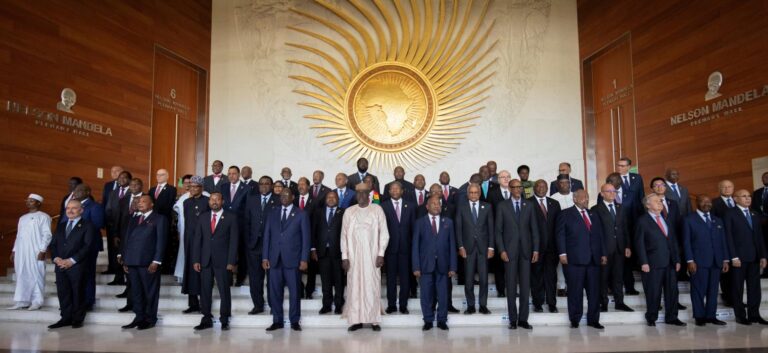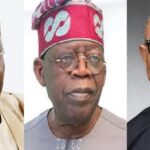To most academics, intellectuals, and pragmatists advocating for a genuine Pan-African renaissance six decades after the founding of the Organisation of African Unity (OAU, later renamed African Union in 2002) in Addis Ababa in 1963, the continent’s aspirations as highlighted in Agenda 2063 might fail to materialise as overwhelming evidence point to Africa’s lack of creative framing, knowledge and thought leadership in global affairs.
Since COVID-19 was declared a global pandemic in March 2020, Western global media corporations have put Africa at the tail end of post-industrial development by formulating narratives that befit Western ideology, markets, history, values, and perspectives at the expense of Africa’s existence. Even so, the outbreak of monkey-pox in Western countries got giant media deflecting the source and linking it to Africa.
When Russia launched its special military operation on Ukraine on February 24 last year, DSTV’s Multichoice shut down Russia Today (Russian television) Channel across Africa in the view that Africans must not listen to anything balanced or sympathetic to Russia, and even so, they decide on what information should be made available to Africans across the continent.
In the face of the hegemonic and dominant Western media organisations’ onslaught, Africa’s political leaders have not reacted with relevant material and content to diffuse narratives against the continent. Theirs has been an unresponsive and less committed call to action while thought leadership is needed.
The effect of the failure to provide African thought leadership has now seen African journalists writing stories about Africa without targeting the African audience but writing for a Western audience. The news framing is the same.
Dealing With A Distorted Image
Internal conflicts in the Democratic Republic of Congo (DRC), Sudan, and the war in Ethiopia that ended last November give hard lessons on the dangers of leaving foreign media corporations with the responsibility to frame Africa’s events.
African media houses have not done much to tell the African story, in most cases, they have allowed the dominant media from the Western countries to lead the narratives, and because Africa has become a ground of military, political and economic contests between the West and East, media companies such as China Global Television Network (CGTN) and Russia Today (RT) have also taken a side in framing Africa.
Instead of using hard power in Africa, both Western and Eastern countries now prefer soft and smart power, a component that infuses foreign values, principles and norms in which they assimilate and graft Africa into the phenomenon of their narratives.
At the 60th anniversary event to commemorate the founding of the OAU on May 25, 2023, at the AU headquarters in Addis Ababa, Ethiopia’s Prime Minister Abiy Ahmed restated a position he made last year before African heads of state that “Africa needs to tell her own story”.
PM Ahmed said, “On this same occasion last year, I called on all of us to tackle typically the negative portrayal of Africa by the global media. I stressed the need for Africa to tell her own story and not allow others to tell it in the service of their own interests.
“In this respect, please allow me to reiterate yet again the need to establish an African Union Continental Media House. Until Africa tells her own story, her image remains distorted. And distortions affect not how others view us, but also how we view ourselves. We owe it to ourselves and our children that Africa’s truths need to be told as they are, untainted with external interests and bias.”
Without a doubt, Africa’s leaders are not oblivious to what they need to do to reconstruct the image of the continent through having a devoted African Union Continental Media House.
Ahmed’s Old Suggestion
Professor of Journalism and Media Studies at the University of Johannesburg, South Africa, Admire Mare says the proposal by Ethiopia’s Ahmed is old as African leaders like Ghana’s independence President Kwame Nkrumah and Libya’s Col. Muammar Gaddafi made the same.
“The proposal by the PM of Ethiopia is not new. Similar proposals were made by Kwame Nkrumah and Muammar Gaddafi. It is an attempt to turn the gaze and use technological infrastructures controlled by Africans to speak back and showcase their own stories.
“Similar attempts have been seen with Al Jazeera, CGTN and Russia Today. The role of the media is still seen in instrumental ways, that is, as an enabler to speak back and speak out. On paper, the proposal is appealing but media sustainability and editorial interference are teething problems.”
According to Mare, African governments will face serious challenges in relation to financing models to fund the African Union Continental Media House, at a time when the AU is also failing to fund its operations.
He made reference to the closure of The Southern Times newspaper, an initiative set up by the governments of Namibia and Zimbabwe in 2004 to provide alternative narratives to Western views that targeted Zimbabwe at the height of its land redistribution programme. The Southern Times announced in 2019 that it was closing operations due to “dwindling financial resources”.
Prof. Mare adds, “We have seen the closure of The Southern Times (a Zimbabwe-Namibia) initiative, so there is no guarantee such a proposal by PM Ahmed will not close shop. To make it work, there is need to come up with a solid business model, strong and accountable board of directors and hiring of media professionals from all African countries. The media house should have bureau chiefs or correspondents in all the countries in Africa.”
Media and Journalism senior lecturer at Limkwokwing University in Lesotho, Mr. Tawanda Mukurunge shared similar thoughts with Prof. Mare that PM Ahmed’s proposal is old and documented in the 1980 MacBride Report also known as Many Voices, One World sponsored by the United Nations Educational Scientific and Cultural Organisation (UNESCO).
Findings of the MacBride Report were in response to the 1970s New World Information and Communication Order (NWICO) debate on the non-equitable access to information and media imperialism.
“There is nothing new about this concept. We have the Pan-African News Agency that was formed in 1979, with headquarters in Senegal, to produce content that presents and preserves the voice of Africa. The essence of NWICO was to counter the reports that Global South countries should be in the periphery of information access,” said Mr. Mukurunge.
According to Mr. Mukurunge, the key challenge to the full realisation of this proposal is the lack of unity between African countries.
“Some of the Francophone countries rely too much on their former coloniser, France, to the extent that as African leaders might agree on something, but when it comes to voting and execution they tend to get directives from France, and that is problematic.
“Remember when Zimbabwe was seeking to galvanise African leaders through having support on its land reform programme, it was Senegal’s former leader Abdoulaye Wade who opposed Zimbabwe’s position to please the French. As long as some of our people are controlled by external forces, as a continent we will not go anywhere,” added Mr. Mukurunge.
So Much Work To Do
There is so much work to do. African journalism needs to go beyond the simple problem of news framing to epistemic framing. Epistemic framing is about the locus of enunciation of the story, that is, the body political and geopolitical of the subject that speaks.
When one listens to or reads African print and electronic news, there is no difference to tell whether the news is meant for an African or Western audience. This tends to show that African journalism seems to be preoccupied with lower-order ethics shaped by the social and epistemic location of the storyteller.
Politics and Journalism lecturer at the Africa University in Zimbabwe, Dr. Alexander Rusero says African journalism will never see an authentic framework as long as it remains in the shadows of the West.
“We (Africans) are still hunters and gatherers of information. We have no authentic African journalism or media but rather colonial mimicry,” says Dr. Rusero.
















